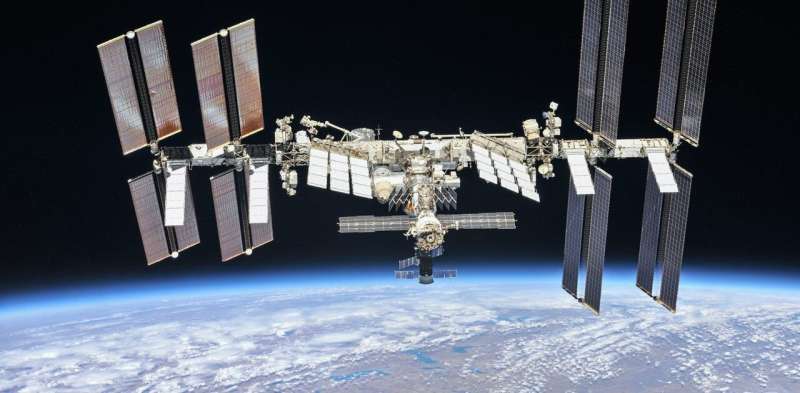It is also a demonstration to the world of the level of force used by Russia, laid bare for all to see.
Satellite imagery used to be the preserve of advanced militaries and very few countries. Today, however, commercial companies are increasingly capturing such imagery, and their combined capability may surpass that of the Russian military. The advantage of this is that these companies can provide quasi-military support, potentially avoiding the tripwire of military involvement in Ukraine by western nations.
There are some who warn of a decline in US space power, particularly in the face of a highly ambitious Chinese space agenda and provocative Russian maneuvers in space. But any estimation of space power must include the commercial sector, in which western companies, and American firms in particular, have a vast lead.
SpaceX provides not only satellite imagery, but also communications. Its founder, Elon Musk, has come to the aid of Ukraine by providing it with terminals that allow access to the Starlink system, a megaconstellation of satellites that offers high-speed internet access. If Russia cuts off internet services and other forms of communication in Ukraine, Starlink could provide connectivity, giving Ukrainians secure to information and networking.
This is not wholly without risk, however. Musk has recently cautioned Ukrainian users that the Starlink terminals—effectively two-way satellite dishes—may allow them to be identified.
There have also been reports of Russia jamming the GPS signal from satellites in space to Ukraine. And it has been reported that Russia fully expects their own GLONASS satellite positioning system to be jammed as well.
If that happens, it will use an older, terrestrial system called Chayka, based on an older radio technology. While not as accurate as a satellite system, it should nevertheless be good enough for many of their purposes.
Direct dangers?
The conflict has also unfolded in other, unexpected ways in the space domain. In a series of tweets, the director general of Russia's space agency Roscosmos, Dmitry Rogozin, warned that ending cooperation over the ISS could lead to it falling out of orbit, possibly onto the United States or Europe (or China or India)—which has been interpreted as a threat.
He noted that Russias' Progress cargo ships which provides the thrust to correct the orbit of the ISS. Without them, the space station would fall into the Earth's atmosphere where most of it would burn up, yet some bits could survive and may hit people or buildings on Earth.
While this is extremely unlikely, not least due to the fact that there are Russian cosmonauts aboard currently, it was an alarming statement. In response, Musk said that his company would assist if Russia withdrew its support in a way that endangered the space station.
SpaceX's Dragon capsule is currently the only other spacecraft capable of docking with and supplying the ISS, and so could also provide the thrust if needed. Either way, it signals a much less cooperative future in space, with the ISS being decommissioned soon and Russia and China refusing to join the US-led Artemis program aiming to launch people to the Moon.
Russia has also halted its sales of rocket engines to the US (though the US had banned the import of these some years ago) and is refusing to launch a batch of 36 OneWeb satellites, which are designed to provide satellite internet broadband services worldwide, unless the UK government divests itself of its share of the OneWeb program, guaranteeing that they will not be used for military purposes. The UK has so far refused to negotiate. OneWeb already has 428 of its planned 648 strong constellation in orbit, and may start looking elsewhere for launch support in the future, as will many other companies.
Many countries also still rely on Russia and its Soyuz rockets for a number of launches for various applications, creating a difficult problem. But SpaceX and other companies, and indeed other countries, are increasingly able to plug the gap, so this is likely to be temporary.
If competition continues, it is not inconceivable that it could lead to conflict. While the use of kinetic weapons, which destroy satellites by running into them at high speeds and which Russia tested recently, seems unthinkable, we cannot be sure what Putin will do next.
The use of such weapons could create increased space junk which could destroy satellites and other probes in space, or even rain down on Earth. So it's important that the hostile threats in the space domain are not be allowed to escalate into anything further.
While Russia has a great deal of expertise in the space domain, its power there faces clear limits. Empty threats and tarnishing its reliability as a launch provider will only undermine its future prospects.
But more importantly, western commercial space assets have provided an important element of support for the besieged Ukrainians. This will enable important data and imagery to flow to where it is needed, to military units, decision-makers and to the population more broadly. Given the number and variety of satellites flying overhead, Russia will find it very difficult to respond.
Explore further
This article is republished from The Conversation under a Creative Commons license. Read the original article.![]()



